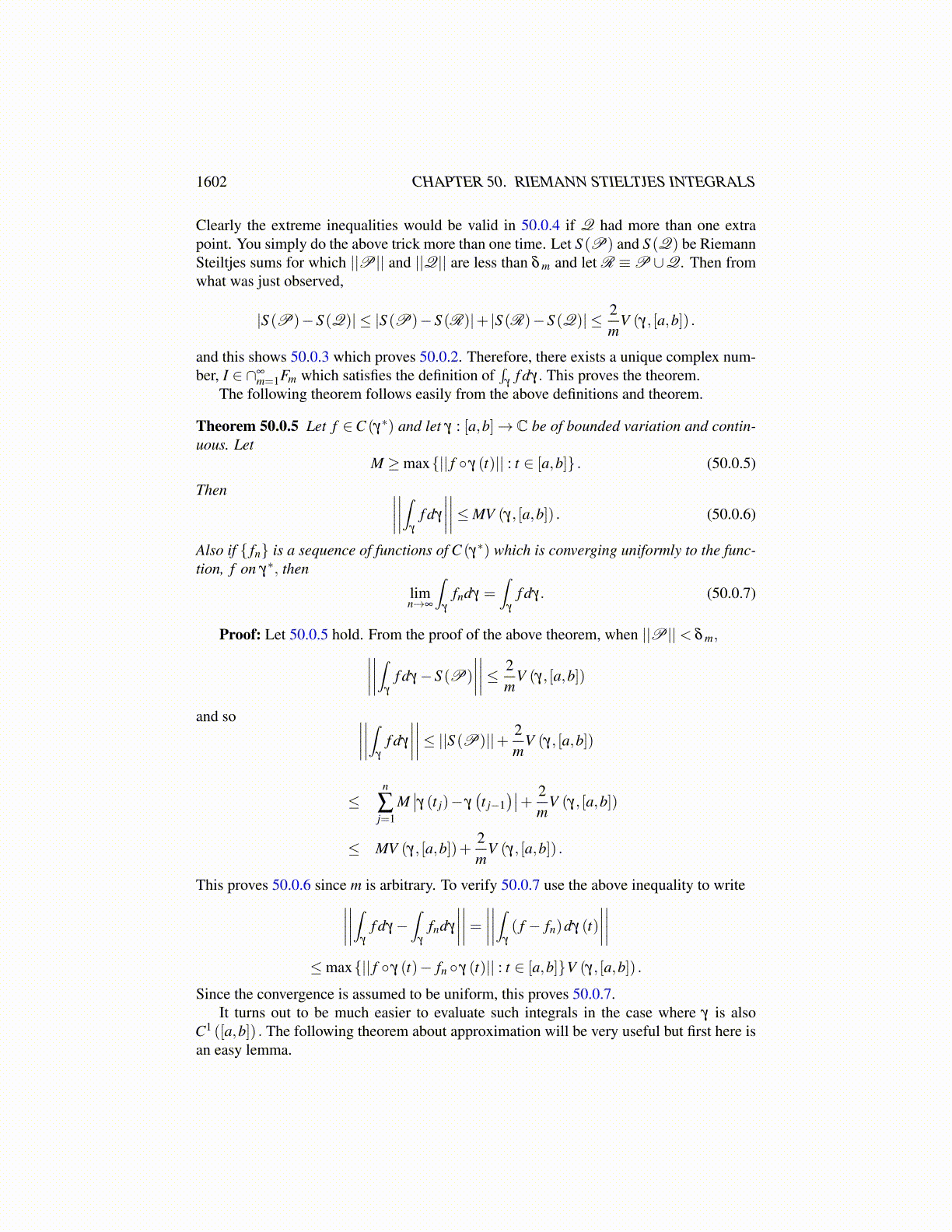
1602 CHAPTER 50. RIEMANN STIELTJES INTEGRALS
Theorem 50.0.3 Let φ and γ be as just described. Then assuming that∫γ
f dγ
exists, so does ∫γ◦φ
f d (γ ◦φ)
and ∫γ
f dγ =∫
γ◦φf d (γ ◦φ) . (50.0.1)
Proof: There exists δ > 0 such that if P is a partition of [a,b] such that ||P|| < δ ,then ∣∣∣∣∫
γ
f dγ−S (P)
∣∣∣∣< ε.
By continuity of φ , there exists σ > 0 such that if Q is a partition of [c,d] with ||Q|| <σ ,Q = {s0, · · · ,sn} , then
∣∣φ (s j)−φ(s j−1
)∣∣< δ . Thus letting P denote the points in [a,b]given by φ (s j) for s j ∈Q, it follows that ||P||< δ and so∣∣∣∣∣
∫γ
f dγ−n
∑j=1
f (γ (φ (τ j)))(γ (φ (s j))− γ
(φ(s j−1
)))∣∣∣∣∣< ε
where τ j ∈[s j−1,s j
]. Therefore, from the definition 50.0.1 holds and∫
γ◦φf d (γ ◦φ)
exists.This theorem shows that
∫γ
f dγ is independent of the particular γ used in its computa-tion to the extent that if φ is any nondecreasing continuous function from another interval,[c,d] , mapping to [a,b] , then the same value is obtained by replacing γ with γ ◦φ .
The fundamental result in this subject is the following theorem. We have in mindfunctions which have values in C but there is no change if the functions have values in anycomplete normed vector space.
Theorem 50.0.4 Let f : γ∗ → X be continuous and let γ : [a,b]→ C be continuous andof bounded variation. Then
∫γ
f dγ exists. Also letting δ m > 0 be such that |t− s| < δ m
implies || f (γ (t))− f (γ (s))||< 1m ,∣∣∣∣∫
γ
f dγ−S (P)
∣∣∣∣≤ 2V (γ, [a,b])m
whenever ||P||< δ m.